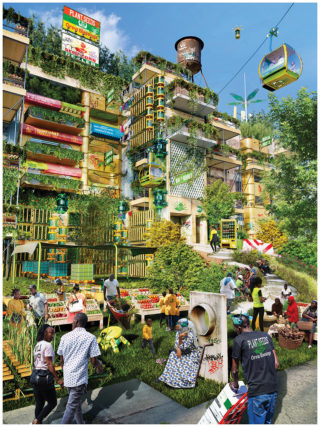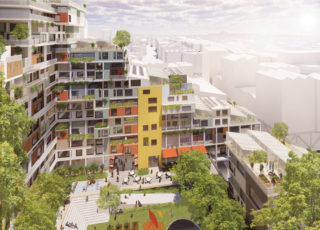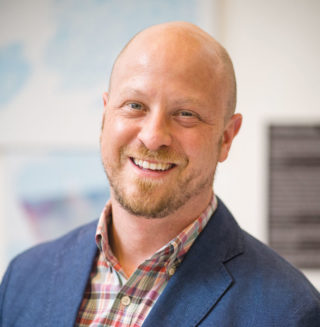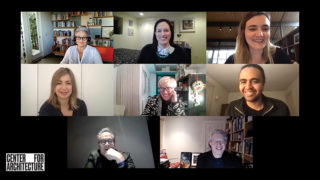
As I write this month’s editorial, it is exactly one year ago that the World Health Organization designated COVID-19 a global pandemic, and the world went into lockdown. As my predecessor, Kim Yao, noted at that time, we were at the beginning of unprecedented times. Indeed, we could hardly imagine how unprecedented those 365 days would be. It was a year…
…of the unjust, senseless murders of Breonna Taylor, George Floyd, and many other Black and Brown people, followed by protests of extraordinary scale and impact.
…of exponential anti-Asian hate.
…that four Force 4 hurricanes slammed down on our shores, and firestorms blazed across the land.
…in which our borders were closed, families separated, and children placed in cages.
…of a profound and divisive election.
…of a nationalist insurrection.
These upheavals have affected us all personally, but also as a society, a profession, and an organization. Many of us have lost loved ones, colleagues, mentors, and teachers, and none of us have been spared from grief.
The massive death toll and accompanying financial crisis have disproportionately impacted minorities across the U.S. and highlighted systemic racial inequalities. While we deal with a global health crisis worldwide, we are also taking on historic inequality and racism.
While we quickly transitioned to the virtual workplace of Zoom, Webex, Teams, and RingCentral, and accelerated “the move to the cloud,” we also experienced a deep loss of our three-dimensional day-to-day moments of human contact, conversation, and the hand-sketch talking we thrive on. The cataclysms not only changed the ways we work, but also demanded we reflect and act on the values and paradigms that guide our profession: How do we create a just, equitable, and inclusive organization, profession, and city? How do we change our ways of working to create carbon-neutral and carbon-positive edifices, master plans, and materials? And, knowing that systemic racism and unconscious bias infect our realm, how do we change the pathway, education, and mentorship of an architect?
This year’s presidential theme, Reflection/Inflection, invites our members to think critically about this moment in time. We were able to quickly pivot to virtual events and provide members with crucial resources while maintaining our diverse programmatic offerings. We organized 485 programs for professionals, students, and the general public. We held our Deans Roundtable, and we joined with AIA New York State (AIANYS) to form a Joint Crisis Taskforce, led brilliantly by current AIANYS President Illya Azaroff to leverage our design skills to inform state and national governments, our peer chapters, and other agencies as we begin the return to our workplaces. The Chapter also teamed up with NYCxDESIGN and Design Advocates to form the Design Corps, an all-volunteer group of architects who are helping New York businesses, restaurants in particular, comply with changing pandemic guidelines.
In keeping with our Statement on Criminal Justice, our Chapter has taken on the difficult discussions about systemic racism, unconscious bias, and complicities. We’ve begun the reset of the Architecture for Justice Committee, convened two forums, and engaged leaders in the criminal justice reform movement and other outside thinkers to focus on broader issues of social, design, and climate justice. We’ll be working with nycoba|NOMA to develop this year’s Civic Leadership Program and support the path to the profession for Black, Indigenous, and people of color, who are so poorly represented in our field.
Our Design Awards program wasn’t spared from change, either. Urgent calls for equity and sustainability were reflected in the decisions of our heroic and thoughtful jury, who opted to make Sustainability a core value. Indeed, Sustainability has been rolled into the other four categories—Architecture, Interiors, Projects, and Urban Design—and used as a lens through which every project was evaluated. This year’s Best in Competition, The Newark Housing Authority’s Training Recreation Education Center by ikon.5 architects, is a reflection of that commitment and deserves to be celebrated for collaboration, equitable public work, and the value of investing in our communities.
With spring comes growth and renewal, and President Joe Biden’s declaration that everyone must be eligible for the vaccine by May 1 means the light at the end of the tunnel is glowing brighter. We hope we’ll soon be able to be with our families, gather to celebrate our awardees, greet each other with hugs rather than elbow bumps, put away our masks and, most importantly, continue to ask challenging questions of ourselves, our community, and our profession.















